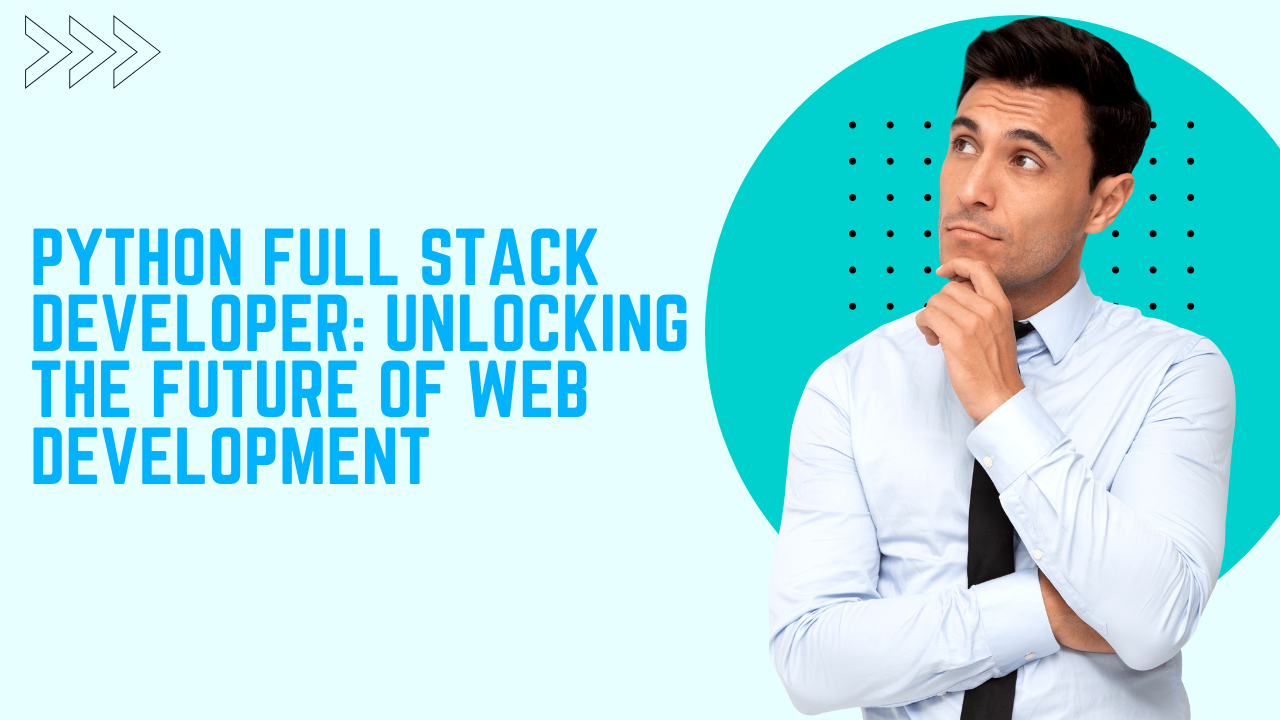In today’s digital age, the role of a Python Full Stack Developer is increasingly in demand. Companies are on the lookout for professionals who can handle both the front-end and back-end aspects of web development, and Python is a language that has captured the attention of many developers. If you’re curious about what it takes to become a Python Full Stack Developer, you’re in the right place! We’ll explore the skills required, the tools you’ll use, and the pathways to success in this exciting field.
What is a Python Full Stack Developer?
A Python Full Stack Developer is a tech-savvy individual who possesses the ability to work on both the client side (front-end) and server side (back-end) of web applications using Python as their primary programming language. This versatility allows them to create dynamic and interactive applications that provide seamless user experiences.
Front-End vs. Back-End: Understanding the Layers
To better grasp what a Python Full Stack Developer does, it’s important to understand the distinction between front-end and back-end development.
Front-End Development
Front-end development focuses on everything that users interact with on a website. This includes the layout, design, and user experience (UX). Key technologies include:
- HTML (HyperText Markup Language): The structure of web pages.
- CSS (Cascading Style Sheets): The styling and layout.
- JavaScript: The programming language that adds interactivity.
Back-End Development
On the flip side, back-end development is all about the server, database, and application logic. Here, Python shines due to its simplicity and readability. Essential components include:
- Databases: Such as MySQL, PostgreSQL, or MongoDB.
- Server-side frameworks: Like Django and Flask.
- APIs: For communication between the front-end and back-end.
Essential Skills for a Python Full Stack Developer
Becoming a proficient Python Full Stack Developer requires a diverse skill set. Below, we break down the essential skills needed to thrive in this role.
1. Proficiency in Python
As a Python Full Stack Developer, a strong command of Python is non-negotiable. This includes familiarity with its syntax, libraries, and frameworks. Popular frameworks like Django and Flask enable developers to build robust applications efficiently.
2. Front-End Technologies
A solid understanding of front-end technologies is crucial. Familiarity with HTML, CSS, and JavaScript, along with front-end frameworks like React or Vue.js, will empower you to create responsive designs.
3. Database Management
Understanding databases is key for handling data efficiently. You should be comfortable with SQL databases (like MySQL) as well as NoSQL databases (like MongoDB) to cater to different application needs.
4. API Development and Integration
APIs play a vital role in connecting the front-end and back-end. Knowledge of RESTful APIs and how to create and consume them is essential for a Python Full Stack Developer.
5. Version Control Systems
Familiarity with version control systems like Git is crucial for collaboration and maintaining code integrity. Understanding branching, merging, and pull requests can streamline your development process.
6. Deployment and Hosting
Once your application is built, it needs to be deployed. Familiarity with cloud platforms like AWS, Heroku, or DigitalOcean, as well as tools like Docker, can make deployment smoother.
7. Problem-Solving and Analytical Skills
A developer’s journey often involves debugging and problem-solving. Strong analytical skills will help you navigate through complex challenges.
Tools and Technologies Every Python Full Stack Developer Should Know
The tech landscape is ever-evolving, and staying updated with the latest tools is vital for any Python Full Stack Developer. Here’s a rundown of some essential tools and technologies you should familiarize yourself with.
Frameworks
- Django: A high-level Python web framework that encourages rapid development.
- Flask: A micro-framework for Python, great for smaller projects.
Front-End Libraries
- React: A popular JavaScript library for building user interfaces.
- Bootstrap: A front-end framework for developing responsive and mobile-first websites.
Database Technologies
- PostgreSQL: A powerful, open-source relational database.
- MongoDB: A NoSQL database, great for handling unstructured data.
DevOps Tools
- Docker: For containerization, making your application easier to deploy and manage.
- Kubernetes: For orchestrating containerized applications, ideal for scaling.
Project Management Tools
- Trello: For task management and organization.
- Jira: For issue tracking and project management, particularly in Agile environments.
Pathways to Becoming a Python Full Stack Developer
Embarking on the journey to become a Python Full Stack Developer involves several steps. Here’s a roadmap to guide you.
1. Get Educated
While formal education isn’t strictly necessary, a degree in computer science or a related field can provide a strong foundation. Alternatively, online courses and bootcamps focused on Python and full stack development can be incredibly valuable.
2. Build a Portfolio
Hands-on experience is key. Start working on personal projects, contribute to open-source projects, or take on freelance gigs. Showcase your work in a portfolio to demonstrate your skills to potential employers.
3. Network with Professionals
Attend tech meetups, conferences, and workshops. Networking can lead to job opportunities and collaborations, enhancing your career prospects as a Python Full Stack Developer.
4. Stay Updated with Trends
The tech industry evolves rapidly. Following blogs, podcasts, and online forums related to Python and full stack development can keep you informed about the latest trends and best practices.
5. Apply for Jobs
Once you feel confident in your skills, start applying for entry-level positions or internships. Tailor your resume and cover letter to highlight your relevant experience and projects.
The Future of Python Full Stack Development
As technology continues to advance, the demand for skilled Python Full Stack Developers is likely to increase. With the rise of data science, machine learning, and cloud computing, Python’s versatility makes it an attractive choice for various applications.
Companies are increasingly recognizing the importance of delivering excellent user experiences alongside powerful back-end solutions, making the role of a full stack developer pivotal in today’s job market.
Conclusion
Becoming a Python Full Stack Developer opens up numerous opportunities in the tech industry. With the right skills, tools, and mindset, you can carve out a rewarding career that allows you to be at the forefront of web development. As the digital landscape continues to evolve, so will the role of full stack developers, making this an exciting time to dive into this field. If you’re eager to learn more, don’t forget to check out this guide that provides additional resources on becoming a Python Full Stack Developer!
FAQ:
1. What does a Python Full Stack Developer do?
A Python Full Stack Developer works on both the front-end and back-end of web applications, utilizing Python for server-side development and various technologies for client-side development.
2. What skills do I need to become a Python Full Stack Developer?
Essential skills include proficiency in Python, front-end technologies (HTML, CSS, JavaScript), database management, API development, and familiarity with version control systems like Git.
3. Is it necessary to have a degree to become a Python Full Stack Developer?
While a degree can be beneficial, it’s not strictly necessary. Many successful developers have transitioned through online courses, bootcamps, or self-study.
4. How can I build a portfolio as a Python Full Stack Developer?
Start by working on personal projects, contributing to open-source initiatives, or doing freelance work. Document your projects and skills on a professional portfolio website.
5. What is the salary range for a Python Full Stack Developer?
Salaries can vary based on location, experience, and the specific company, but generally, a Python Full Stack Developer can expect a competitive salary in the tech industry.






Leave a Reply